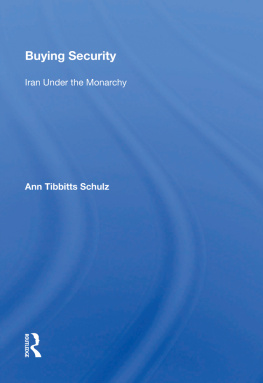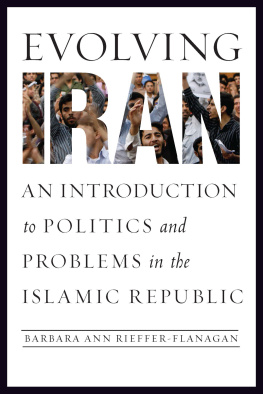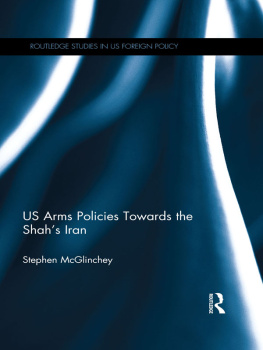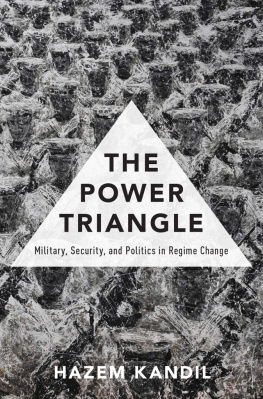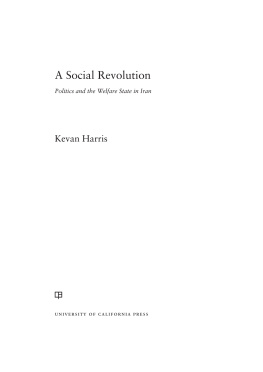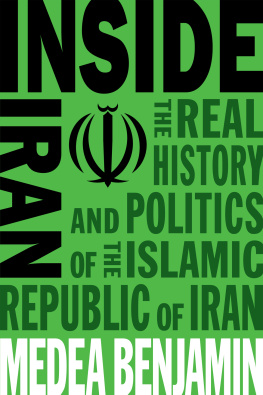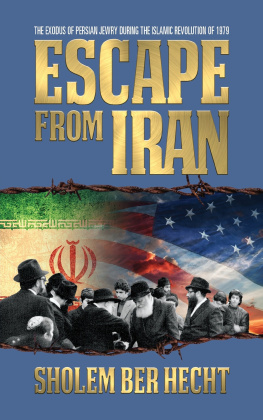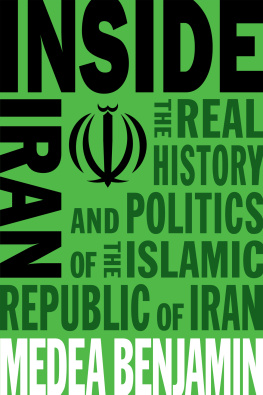Buying Security:
Iran Under the Monarchy
Studies in International Politics
Leonard Davis Institute for International Relations
The Hebrew University, Jerusalem
Buying Security: Iran Under the Monarchy, Ann Tibbitts Schulz
Africa and Israel: Relations in Perspective, Olusola Ojo
The Illusion of Deterrence: The Roosevelt Presidency and the Origins of the Pacific War, Abraham Ben-Zvi
Europe's Middle East Dilemma: The Quest for a Unified Stance, Ilan Greilsammer and Joseph Weiler
Dynamics of Dependence: U.S.-Israeli Relations, Gabriel Sheffer, ed.
Jordan's Palestinian Challenge, 1948-1983: A Political History, Clinton Bailey
STUDIES IN INTERNATIONAL POLITICS
LEONARD DAVIS INSTITUTE FOR INTERNATIONAL RELATIONS
THE HEBREW UNIVERSITY, JERUSALEM
Buying Security
Iran Under the Monarchy
Ann Tibbitts Schulz
First published 1989 by Westview Press
Published 2018 by Routledge
52 Vanderbilt Avenue, New York, NY 10017
2 Park Square, Milton Park, Abingdon, Oxon OX14 4RN
Routledge is an imprint of the Taylor & Francis Group, an informa business
Copyright 1989 by Taylor & Francis
All rights reserved. No part of this book may be reprinted or reproduced or utilised in any form or by any electronic, mechanical, or other means, now known or hereafter invented, including photocopying and recording, or in any information storage or retrieval system, without permission in writing from the publishers.
Notice:
Product or corporate names may be trademarks or registered trademarks, and are used only for identification and explanation without intent to infringe.
Library of Congress Cataloging-in-Publication Data
Schulz, Ann Tibbitts.
Buying security: Iran under the monarchy/by Ann Tibbitts Schulz.
p. cm(Studies in international politics)
Bibliography: p.
Includes index.
ISBN 0-8133-7661-0
1. IranArmed ForcesAppropriations and expenditures. 2. Iran
Armed ForcesProcurement. 3. IranMilitary PolicyEconomic
aspects. 4. IranDefensesEconomic aspects. I. Title.
II. Series: Studies in international politics (Boulder, Colo.)
UA853.17S34 1989
338.4'3355'00955dc20
89-32207
CIP
ISBN 13: 978-0-367-01268-7 (hbk)
I express my gratitude to the Swedish Agency for Research Cooperation with Developing Countries, which funded the original case study, and to Nicole Ball and Milton Leitenberg as principal investigators for the project.
The original manuscript was typed by Terry Reynolds and Karen E. Shepardson of the Word Processing Center, Gark University. I thank them for their help.
Finally, the willingness of several people to read the manuscript and to comment on it is very much appreciated, although, for political reasons, I shall not mention them by name. Many persons involved in carrying out the Shah's military and economic programs offered their time and recollections during a difficult period of their exile.
Ann Tibbitts Schulz
One
Introduction
In 1980, the Swedish Agency for Research Cooperation with Developing Countries (SAREC) agreed to support a project that would investigate the economic impact of military spending on developing countries. This case study is one product of that project. Interest in the relationship between arms and economic growth has mounted since the early 19705. The first cross-national research in this area, published in 1973, was funded by the U.S. Agency for International Development.
Two worldwide trends help to account for the interest of public agencies in the question of military spending and its economic consequences. Since 1970, most Third World governments have chosen to increase the proportion of their budgets spent on military programs in general, and on weapons procurement in particular. Over the same period, the North-South conflict over economic issues has become polarized, with the governments of neither group being willing to accept substantial responsibility for poverty and inequality.
One of the questions about the causes of continuing poverty is the relationship between government expenditures, including military spending, and economic growth. Statistics show that the military portion of government spending is indeed higher among low-income countries. Not surprisingly, the question has become very politicized, and it is worthwhile to look briefly at the politics before we delve into the more academic issues.
From the perspective of the "North," or the industrialized countries, excessive on wasteful government spending makes an important contribution to poverty. Conservatives and liberals alike can find historical support for their political views in this explanation. From a conservative point of view, if government spending is a significant drag on economic growth, corrective measures are clearly the responsibility of the Third World governments themselves and redistributing resources from North to South will only postpone the day of political accountability for the latter. From a liberal perspective, diverting resources from the military to the civilian economy would produce higher rates of growth. According to this view, excessive military spending is a result of a kind of "political malfunctioning," a combination of corruption and the imposition of superpower competition in regional politics. From this perspective, too, a reformist solution to poverty and underdevelopment is possible, and a major restructuring of the international economic system can be avoided.
In contrast to both these perspectives, Third World leaders tend to see the controversy over military spending as a preoccupation of the industrialized countries and its reduction as an unacceptable alternative, given the security threats that they face. From their perspective, structural reforms in the international economic order are the most promising response to poverty, not cutting back on military budgets, a position which is quite close to the official views of the communist governments.
The discussion of the economic impact of military spending has taken on a second, related, dimension that also bridges politics and academic research. The gravity of current levels of military and economic insecurity has elevated the guns-or-butter question into a controversy over the fundamentals of national security. The fundamental need for physical security as a prerequisite for economic growth is unquestioned. But the reversethe role of economic growth in national securityis the subject of much debate.
One view of national security emphasizes a country's military capabilities and the attendant technological and industrial accoutrements of military power. Others focus on the economic foundation of national security, including human welfare as well as economic growth. From the latter perspective, military security purchased at the cost of economic growth and development may actually have the effect of reducing national security in the long term.
At the policymaking level, however, conflicts between military and economic security can and do arise. First, a balance between the two is politically difficult to maintain when investment decisions are being made within the context of competition for scarce resources. Second, military expenditure and investments designed to promote economic growth and development are not necessarily "mutually-interrelated," as the commission proposed. Military technology, for example, has changed dramatically since the Second World War and most political leaders choose to purchase the most advanced weapons available. However, nonmilitary investment projects involving similar technologies may not produce sustained economic growth in the civilian sector, particularly in the less industrial countries. There is no doubt that the question of how military expenditures and economic performance are related is a significant one and that the answers to this question will require extensive research.


